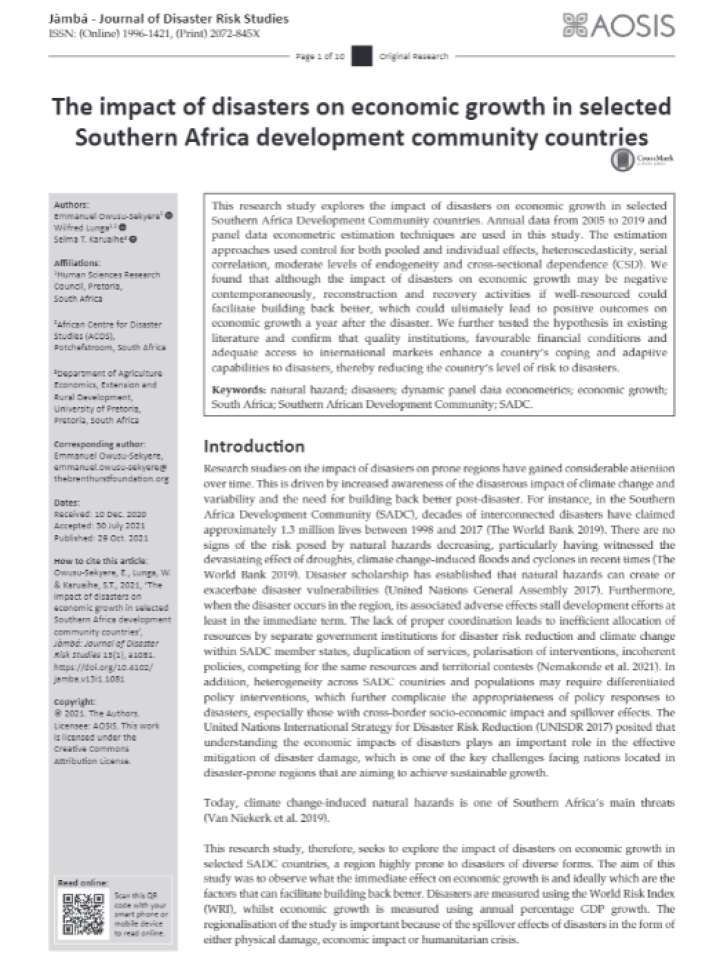The impact of disasters on economic growth in selected Southern Africa development community countries
This research study seeks to explore the impact of disasters on economic growth in selected Southern Africa Development Community (SADC) countries, a region highly prone to disasters of diverse forms. The aim of this study is to observe what the immediate effect on economic growth is and ideally which are the factors that can facilitate building back better. Disasters are measured using the World Risk Index (WRI), whilst economic growth is measured using annual percentage GDP growth. The regionalisation of the study is important because of the spillover effects of disasters in the form of either physical damage, economic impact or humanitarian crisis.
The findings reveal that disasters do have a negative contemporaneous impact on economic growth in the countries studied. However, a year after the disaster the relationship between disasters and economic growth turns positive. This finds support from the literature that the impact of disasters on economic growth varies with time. The positive outcome on economic growth in a future period reflects the extent to which reconstruction and recovery measures could mitigate the initial negative damage caused by the disaster. Reconstruction and recovery measures that replace damaged capital stock with modern technology are known to positively impact economic growth. Reconstruction activity also generates increased sales tax receipts and additional employment. However, the ability of a country to reconstruct post-disaster is further dependent on a number of mediating factors, which include the quality of a country’s institutions, degree of financial openness, human capital development and its ability to attract foreign direct investment, as confirmed by earlier studies
Explore further
